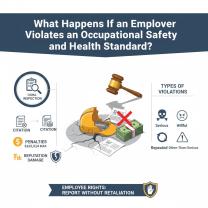How to find government employee salaries?
Here’s a clear, step-by-step guide to finding government employee salaries:
Step 1: Identify the Government Level and Agency
Government employees can work at different levels: federal, state, or local. You need to know which level and which agency the employee works for because salary databases are often organized this way.
Federal: U.S. federal employees (like NASA, IRS, etc.)
State: State government workers (like state police, teachers, state agencies)
Local: City or county employees (like police, firefighters, municipal staff)
Step 2: Check Publicly Available Databases
Many governments maintain salary databases as part of transparency initiatives.
Federal Employees
USA.gov provides guidance: https://www.usa.gov/federal-employees
FederalPay.org: Search federal employee salaries by agency and job title: https://www.federalpay.org
OPM (Office of Personnel Management) publishes pay scales: https://www.opm.gov/policy-data-oversight/pay-leave/salaries-wages
State Employees
Most states have transparency portals. Example:
Search “<State Name> employee salary database” in Google.
Local Employees
City or county websites often have salary or payroll reports.
Example: “New York City Employee Salaries” → https://www.salary.nyc
Step 3: Search by Employee Name or Position
Once you access the database:
Use name search if you know the employee.
Use position or department search if you only know their role.
Most databases provide:
Name
Job title
Department/agency
Annual salary or hourly wage
Sometimes additional benefits or overtime
Step 4: Use Transparency and Open Records Requests (If Needed)
If salaries are not online, you can:
File a Freedom of Information Act (FOIA) request for federal employees.
Submit a public records request for state or local employees.
Contact the agency’s human resources or public affairs office for guidance.
Step 5: Verify the Information
Compare data from multiple sources if possible.
Make sure the database is official or reputable.
Keep in mind some salaries may be approximations or exclude bonuses/benefits.
Tip: Many news organizations and transparency websites regularly update government salary data, which can save time.
Here's a curated list of reliable, publicly accessible databases where you can find government employee salary information at the federal, state, and local levels:
Federal Government Salary Databases
FederalPay.org
Offers a searchable database of federal civilian employees, allowing you to look up individual salaries by name, job title, location, agency, and year.FedsDataCenter.com
Provides detailed federal pay rates, including information on General Schedule (GS) and Law Enforcement Officer (LEO) pay scales.OpenPayrolls – Federal Agencies
Features salary and payroll records for over 440 federal government agencies and sub-agencies, including the IRS, NASA, and the USPS.
State Government Salary Databases
Washington State Fiscal Information – Salaries
Provides the latest final data on state employee salaries, with updates anticipated annually.Open The Books – Washington State Employees
Offers detailed salary information for Washington State employees, including positions at the University of Washington and Washington State University.GovSalaries
A nationwide database with over 150 million salary records from more than 60,000 sources, covering various state employees across the U.S.OpenPayrolls – State Employees
Features salary records for state employees, including those in education, healthcare, and public safety sectors.
Local Government Salary Databases
City of Seattle – Wage Data
Offers wage data for City of Seattle employees, including detailed information on salaries and job titles.OpenPayrolls – Seattle, WA
Provides salary information for Seattle city employees, with data available from 2017 to 2024.OpenPayrolls – Local Government Employees
Features salary records for local government employees across various cities and counties in the U.S.
Tips for Effective Salary Searches
Use Filters: Most databases allow you to filter by name, job title, agency, or location to narrow down your search.
Understand Pay Structures: Familiarize yourself with pay systems like the General Schedule (GS) for federal employees to better interpret salary data. U.S. Office of Personnel Management
Check for Updates: Salary data is typically updated annually; ensure you're viewing the most recent information available.
Consider Benefits: Some databases provide information on additional compensation, such as overtime or bonuses, which can significantly impact total earnings.
How to Find Government Employee Salaries
Finding government employee salaries is often more transparent than in the private sector due to public disclosure laws. The process typically involves using publicly accessible databases and records, as government agencies, by their nature, are accountable to taxpayers. This transparency allows citizens, journalists, and researchers to understand how public funds are being allocated for personnel.
Online Resources and Databases for Salary Information
Several online resources and databases compile and make government salary information available:
Federal Government:
Office of Personnel Management (OPM): The OPM website is the official source for federal government employment data, including general schedule (GS) pay scales and executive branch salaries. While individual salaries might not always be searchable by name, aggregate data and pay scales are readily available.
USAspending.gov: This site provides data on federal spending, including information related to contracts and grants, which can sometimes indirectly reveal salary costs associated with specific projects.
State and Local Government:
Many states maintain their own Comptroller or Treasurer websites that publish databases of state employee salaries.
Local government websites (e.g., city, county) often have dedicated sections for financial transparency or public records, where salary data for municipal employees can be found.
Investigative Journalism and Non-Profit Databases: Websites run by journalistic organizations or watchdog groups (e.g., Transparent California, OpenTheBooks.com) often collect and make this data searchable by individual name, agency, and position across various states and localities. These often provide user-friendly interfaces for navigating complex datasets.
Factors Affecting Government Compensation
Several factors influence government compensation, making it important to understand the context behind the numbers:
Pay Scales and Grades: Both federal and many state governments use structured pay scales (like the Federal General Schedule, or GS scale) with various grades and steps. An employee's grade is determined by their job duties and qualifications, while steps within a grade are usually earned through tenure and satisfactory performance.
Location-Based Pay (Locality Pay): To account for differences in cost of living, federal and some state governments offer "locality pay" adjustments. Employees in high-cost areas like New York City or San Francisco will receive higher base salaries than those in lower-cost regions for the same position.
Job Classification: The specific duties, responsibilities, and required qualifications of a position heavily dictate its pay level. Highly specialized or leadership roles naturally command higher salaries.
Years of Service/Experience: As with most professions, more years of experience generally lead to higher pay within a given pay grade or through promotion to higher-level positions.
Agency and Department: Compensation can vary slightly between different agencies or departments within the same government level, depending on their mission, funding, and the types of roles they require.
Union Contracts: For unionized government employees, salaries and benefits are often determined through collective bargaining agreements.
Comparing Salaries Across Agencies
When comparing salaries across different government agencies, it's essential to consider the factors listed above. A direct comparison of raw salary figures without context can be misleading.
Federal vs. State vs. Local: Salaries for similar positions (e.g., administrative assistant, IT specialist) will likely differ significantly between federal, state, and local government levels due to different pay scales and budget constraints.
Locality Pay Adjustments: Always account for locality pay when comparing federal salaries, as a GS-11 in Omaha will earn less than a GS-11 in Washington D.C.
Job Titles vs. Duties: While job titles might seem similar, the actual responsibilities and required qualifications can vary, leading to different pay scales. Always try to understand the job description rather than just the title.
Benefits: Beyond base salary, government benefits packages (health insurance, retirement plans, paid leave) are often very robust and should be considered as part of the total compensation when making comparisons.
Legal and Privacy Considerations
The disclosure of government employee salaries is generally legal and falls under public records laws (like the Freedom of Information Act, or FOIA, at the federal level, and similar laws at state levels). The principle is that information about how taxpayer money is spent, including employee compensation, should be accessible to the public.
Public vs. Private: This transparency typically applies only to government employees. Private sector salaries are not subject to the same public disclosure requirements unless the company is publicly traded and certain executive compensation must be disclosed.
Limited Privacy: While individual salaries are often public, other personal details (e.g., home address, family information) of government employees are generally protected by privacy laws and are not disclosed.
Specific Exemptions: There can be specific exemptions to disclosure, particularly for employees in sensitive national security roles or those in law enforcement whose personal safety could be jeopardized by full public disclosure. These exemptions are usually narrowly defined to balance public transparency with individual safety.













